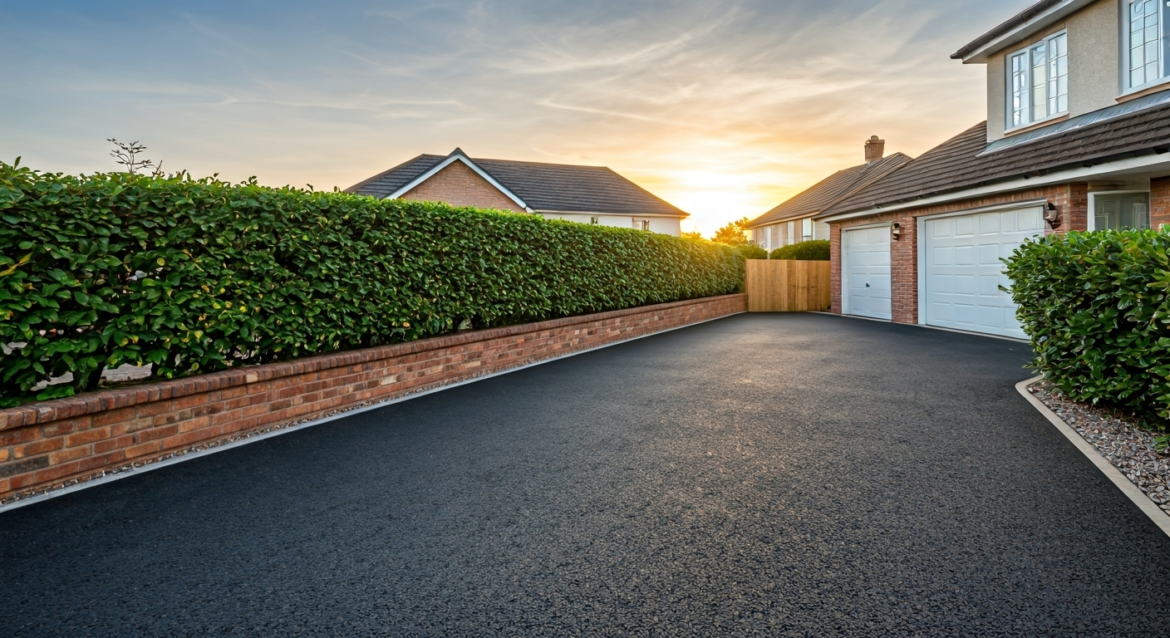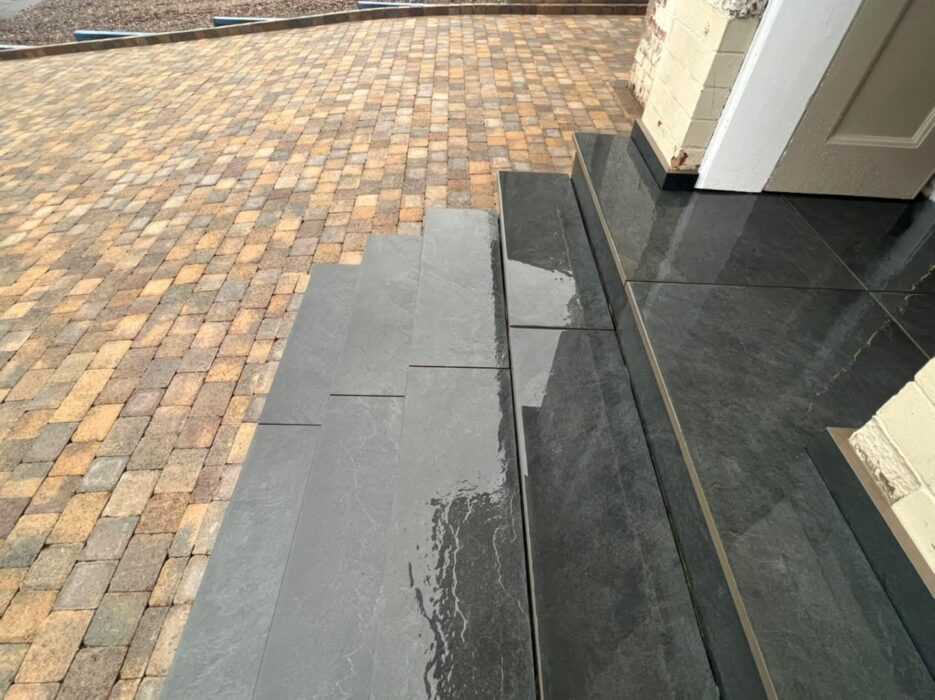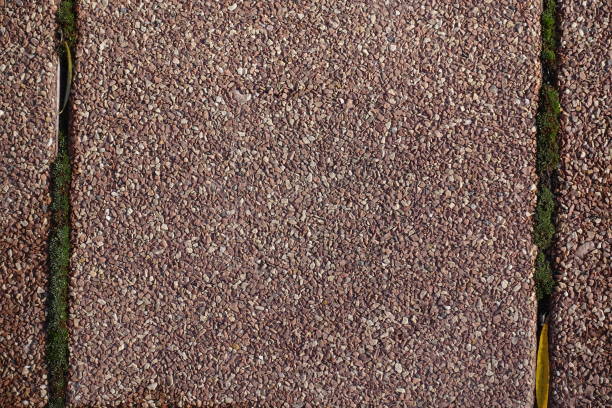Is a Resin Driveway Right for Heavy Vehicles?
When you’re pouring your heart into your dream home or lovingly upgrading the space you already cherish, the last thing you want is the gut-wrenching sight of cracks creeping across your driveway under the weight of your RV or truck. It’s not just about aesthetics—it’s about trust. Can resin driveways truly stand their ground when the heavyweights roll in?
The Strength Behind the Beauty
Resin driveways captivate homeowners with their clean, modern appearance and hassle-free upkeep. But if you own a camper, van, or commercial vehicle, visual appeal isn’t enough—you need resilience. Imagine sinking thousands into a flawless driveway, only to have it sag beneath your vehicle. Heartbreaking, isn’t it? This is why understanding the strength and structural requirements of resin systems is essential. Because in the end, it’s not just a driveway—it’s the foundation for peace of mind.
Understanding the Types: Resin-Bound vs. Resin-Bonded
Here’s where things get technical—but crucial. Resin-bound driveways involve mixing stones with resin before laying, creating a durable, smooth, and naturally draining surface. Resin-bonded versions, however, simply scatter stones onto a resin-covered base, offering a similar look but far less strength. If you regularly park anything heavier than a sedan, don’t gamble—resin-bound is the reliable route.
Can Resin Really Handle Heavy Loads?
Let’s be real. A well-installed resin-bound driveway can bear up to 7.5 tonnes. That’s plenty for small trucks, delivery vans, and RVs. But the secret isn’t just in the resin—it’s in what lies beneath. A strong, well-prepared sub-base of MOT Type 1 or reinforced concrete makes all the difference. Without it, even the best resin surface won’t last.
A Driveway That Delivers More Than Just Looks
Resin driveways aren’t just strong—they’re stunning.
Versatility with Style: Whether you love modern minimalism or rustic charm, resin’s color and finish options let it blend seamlessly into your vision.
Sustainable and Smart: It’s porous, meaning rainwater passes through naturally—goodbye puddles, hello eco-friendliness.
Easy to Maintain: No more relentless weeding or scrubbing. A gentle wash now and then is all it takes to keep it looking pristine.
The Weight Question: What’s the Real Limit?
Let’s break it down: most quality resin-bound driveways handle up to 7.5 tonnes. That’s no small feat—it covers most home and light commercial needs. But strength isn’t only about numbers. It’s about thoughtful installation. Get the foundation wrong, and you could face costly regrets.
How Resin Distributes the Load
Here’s the science: heavy vehicles exert pressure differently depending on tire size, load distribution, and how long they’re parked. Resin-bound systems excel at evenly spreading this pressure—especially when combined with a robust sub-base. Wide tires help too, minimizing pressure points that cause cracks.
Tested by Real Life, Not Just Theories
Resin isn’t unproven—it’s trusted in high-traffic spaces like hospitals, airports, and schools. These places demand durability, and resin delivers. When properly laid over a reinforced base, premium resin systems can handle more than most residential setups will ever demand.
Myth: Resin Is Not Fragile
Let’s crush the rumors. No, resin doesn’t crumble under heavy weight—at least not when installed by professionals. Those nightmare stories you’ve heard? They often come from poor installs or cheaper resin-bonded versions. When resin-bound systems fail, it’s usually due to shortcuts in groundwork, not the material itself. Done right, resin is strong, stable, and more than capable.
Caring for Resin Under Pressure
Good news: maintenance is light. Still, a little care goes a long way, especially with regular heavy use. Shift parking spots occasionally, don’t let oil or fuel pool on the surface, and give it a light pressure wash every few months. Got a crack? Patch it early—it’s easy and inexpensive.
What’s the Cost—And Is It Worth It?
Yes, resin costs more up front. But the long-term value? Incredible. With fewer repairs, higher curb appeal, and years of dependable performance, resin driveways often end up cheaper than concrete or asphalt when you consider the full picture. Think of it as paying once for peace of mind—rather than paying again and again for repairs.
What Experts Says
Civil engineers and seasoned installers agree: resin isn’t the weak link—installation is. With a properly prepared sub-base and precise laying, resin becomes a champion surface. Precision and preparation are everything.
Your Final Decision: Is a Resin Driveway Right for Heavy Vehicles?
Still undecided? Think beyond the surface. You want durability, elegance, sustainability, and simplicity—right? Resin gives you all that, and with the right installation, it’ll carry the weight of your lifestyle without breaking a sweat. Invest in quality materials, experienced professionals, and a solid base, and resin could be the last driveway you ever need.
FAQs
- Can a resin driveway support an RV or truck?
Yes, provided it’s a resin-bound system installed over a compacted, reinforced sub-base with the correct thickness. - Will parking a heavy vehicle void the warranty?
Not always. Many installers cover standard heavy vehicle use, but confirm this before signing anything. - How long does a resin driveway last under constant heavy traffic?
With proper care and maintenance, expect 15–25 years of dependable service. - Can resin driveways be repaired easily if damaged?
Absolutely. Small cracks or damage can be patched seamlessly—no full replacement needed. - Is planning permission required for a heavy-duty resin driveway?
Usually not, unless you’re altering drainage or installing over a large area. It’s best to check with local authorities to be safe.
A Complete Guide to Resin Bound & Bonded Gravel Solutions
A resin driveway provides the perfect upgrade solution, offering a sleek, low-maintenance, modern finish. Driveways made of resin are durable, lon, sting, and ae and are land pleasing. The greatest thing about it is that you can do it yourself! This guide covers all the basics for DIY resin driveways, from types of driveways to a detailed installation process.
What is a Resin Driveway?
A resin driveway is a form of surfacing in which gravel is encapsulated with a special resin. This forms a very hard, smooth, and porous finish. All these features contribute to this choice is highly favored, as it requires relatively little maintenance, is weed-resistant, and allows rainwater to infiltrate the surface, thereby preventing puddles and drainage problems.
Types of resin driveways:
Resin Bound Gravel
- Gravel is mixed with resin before being laid
- Creates a smooth, even surface
- Fully permeable (water drains through quickly)
- Ideal for driveways, paths, and patios
Resin Bonded Gravel
- Resin is spread onto the surface first, and then gravel is sprinkled on top
- Rougher, more textured finish
- Less permeable than resin-bound driveways
- Suitable for areas where extra grip is needed
Benefits of a Resin Driveway
Here we write Benefits of a Resin Driveway
- Long-lasting: Can last over 15 years with proper care
- Low Maintenance: No weeds or loose stones
- Weather Resistant: Handles rain, snow, and extreme temperatures well
- Visually Appealing: Comes in a variety of colors and finishes
- Eco-friendly: Permeable surface reduces water pooling and runoff issues
What You Need for a DIY Resin Driveway?
Before you start, make sure you have the right materials and tools:
Materials:
- Resin driveway kits (includes resin and gravel mix)
- Gravel resin binder
- Primer (if needed)
- Anti-slip additives (optional but recommended)
Tools:
- Trowel or screed for leveling
- Mixing drill and paddle
- Gloves and safety goggles
- Wheelbarrow for mixing
- Pressure washer (for surface preparation)
Step-by-Step DIY Installation Guide
Step 1: Prepare the Surface
- Clear any debris, weeds, or dirt from your existing driveway
- Use a pressure washer to clean the surface thoroughly
- If applying on concrete or tarmac, apply a primer for better adhesion
Step 2: Mix the Resin and Gravel
- Pour the resin into a large mixing bucket
- Gradually add the gravel while mixing to ensure even coating
- Follow the instructions on your resin kit for the correct ratio
Step 3: Lay the Resin Mix
- Pour the mixed resin and gravel onto the driveway
- Spread evenly using a trowel or screed
- Work quickly, as resin begins to set within 30-40 minutes
Step 4: Smooth and Level
- Use a trowel to level the surface and ensure even thickness
- If using resin-bonded gravel, sprinkle additional gravel on top before the resin sets
Step 5: Allow to Cure
- Leave the driveway to set for at least 24 hours
- Avoid walking or driving on it during this time
Extending Resin Use to Paths & Walkways
Did you know resin isn’t just for driveways? You can also use resin path kits to create smooth, attractive walkways in your garden. The process is similar but on a smaller scale. A resin path is a great way to connect different areas of your yard with a stylish, non-slip surface.
Cost & Budget Considerations
- DIY vs. Professional Installation: Doing it yourself can save money compared to hiring a contractor.
- Resin Driveway Kits: Prices vary, but expect to spend around $40–$80 per square meter.
- Long-term Savings: Resin driveways require minimal maintenance, reducing repair costs over time.
Common Mistakes & Troubleshooting
- Uneven Surface? Ensure you spread the mixture evenly and don’t let it pile up.
- Cracking or Loose Stones? Check that you’ve used the correct resin-to-gravel ratio.
- Poor Drainage? Ensure the base is prepared correctly and the driveway is fully permeable.
Conclusion
A resin-bound driveway is a great option that transforms your house’s appearance but offers durable and low-maintenance solutions. Provided that you have the right materials, tools, and instructions. Are you thinking of a DIY resin driveway project? Look at the NB Resin driveway and gravel resin contractor available to start your project today.
Benefits of Resin Bound Driveways: A Durable and Stylish Choice
A resin bound driveway is an option for upgrading your property’s exterior that combines everything perfect: durability, attractiveness, and practicality. NBResin Driveways transforms ordinary driveways into stunning entrances that considerably boost the curb appeal and value of the property. Dive into the benefits of choosing a resin-bound driveway for your home.
What is a Resin-Bound Driveway?
A resin bound driveway combines high-quality resin and aggregates, including gravel, crushed stone, or marble. It is laid on a prepared base for a smooth, permeable, and rigid finish. Compared to concrete driveways, resin-bound driveways have several unique aesthetic and functionality advantages.
Key Benefits of Resin-Bound Driveways
1. Durability and Longevity
Durable resin-bound driveways can withstand heavy traffic and harsh weather conditions and do not wear out quickly. The resin then acts as a binder that bonds the aggregates firmly and does not let them break away, chip, or displace. A resin-bound driveway can last over 20 years when installed properly and maintained.
2. Stylish and Customizable
One of the most unique features of resin-bound driveways is the versatility in aesthetics. A selection of colours, textures, and finishes allows for such a diverse range that it is possible to achieve a driveway that is very much in keeping with the style of the architecture and landscaping around the house. Whether a preference for a natural look with earthy tones or an immaculate modern design, there are endless possibilities.
3. Permeability
Contrary to non-porous materials, the resin-bound driveways do not prevent water from seeping since they are entirely permeable. This will help lower the risks of standing water, flooding and moisture problems, which makes it an eco-friendly alternative. It is also SuDS compliant, which is excellent because we need to follow the rules in urban areas toto prevent water runoff systems.
4. Low Maintenance
A resin-bound driveway is easy to maintain. Due to its smooth surface, no weeds can sprout, and all dirt or debris can be washed away with a hose or pressure washer. Occasionally, sweeping will suffice to keep the driveway clean.
5. UV Stability
Resin-bound driveways are UV stable and won’t fade or disintegrate over time. Therefore, even in sunny climates, your driveway will retain its lively look for quite some time.
6. Slip-Resistant Surface
Safety is another significant advantage of resin-bound driveways and surfacings on their textured finish. The surface offers excellent grip and is slip-resistant even when wet or icy. It makes a practical option for those who live with children, elderly relatives, or frequent visitors to the house.
7. Quick Installation
Resin-bound driveways are much quicker to install than conventional driveway options, so there is minimal disruption to your daily life. Once laid, the surface is good to go within 24-48 hours, depending on the cure time.
Why Choose NBResin Driveways?
NB Resin Driveways provide high quality driveways and excellent craftsmanship. A team of skilled professionals uses only the best materials and advanced methods to ensure that your driveway is not just up to standard but surpasses expectations. We must work alongside you from the consultation phase through installation to realize what you have envisioned for yourself.
Conclusion
A resin-bound driveway is a significant investment, as it increases any property’s functionality and visual aspect. This material’s durability, minimal maintenance, and adaptable design make it a preferred option for homeowners who wish to add value and a touch of elegance to their houses.



